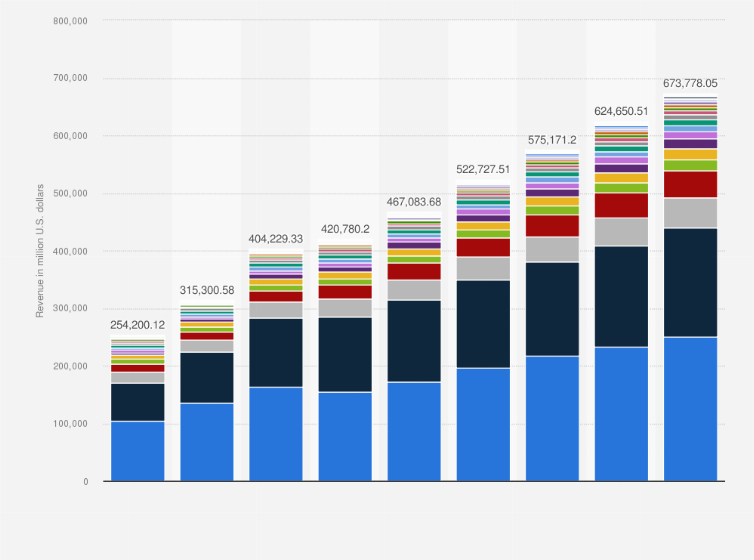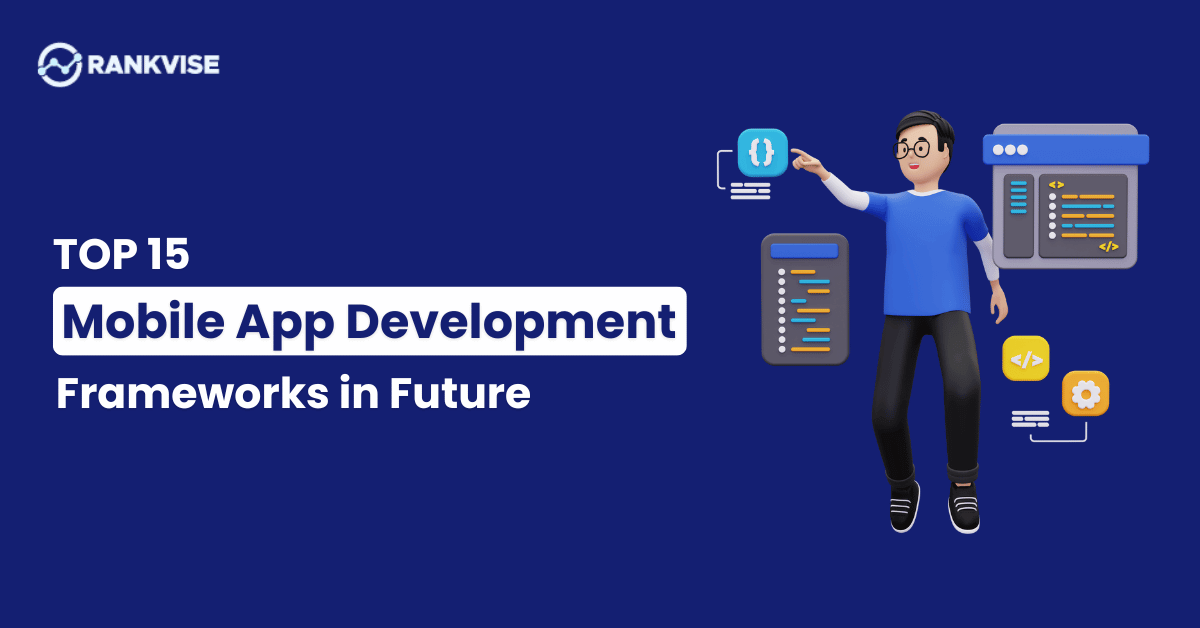Although the idea of lifelong learning is not new, it has never been more accessible. In today’s increasingly digital society, there are less and less restrictions on the pursuit of knowledge. Thanks to the advent of mobile applications, lifelong learning has expanded beyond the boundaries of conventional classrooms and is now available at our fingertips.
These useful digital tools have completely altered how we learn new things and keep up with the world around us. We look at the vital role mobile apps play in fostering lifelong learning and boosting digital literacy.
Flexible Learning on Your Terms
With modern technological breakthroughs, students have a wide range of tools at their disposal to succeed in their academic endeavors. From interactive e-books to immersive instructional games, the learning landscape has transformed into a dynamic playground.
But demand for high-caliber academic papers persists nevertheless. While there are many top-notch tools available on mobile devices, there are still occasions when students need assistance navigating the challenges of their research and writing. This is where you can ask Google to help you pay someone qualified to write my paper. These expert academic writers offer crucial support, guaranteeing that students obtain high-quality papers that meet their educational objectives.
But if you’re not dealing with unusual conditions, like a pressing deadline or a lack of interest in the subject, you should better handle academic tasks on your own. Thankfully, there are a plethora of mobile apps available for you to fall in love with learning. They can help you customize your educational experience to suit your own schedule and tastes.
You may use your free time to learn something new, whether it’s a few minutes during your morning commute or an hour before night. Learning becomes a flexible journey that is no longer constrained by set schedules or geographical places.
Let’s see how mobile apps can affect lifelong learning and digital literacy.

Diverse Learning Resources
Thanks to the accessibility, adaptability, and variety of resources today, we are empowered to continually learn something fresh. More and more apps provide thorough lessons on a variety of topics, frequently organized in simple-to-follow chunks. For instance, Duolingo provides entertaining language lessons that simulate a game-like experience to ensure you always stay alert and engaged. Coursera and edX provide a vast selection of university-level courses on topics ranging from computer science to the humanities.
Need to pick up a new skill or software? Step-by-step courses on subjects like computing, graphic design, marketing strategy, and even cooking methods are available through apps like Khan Academy or LinkedIn Learning. And there is a ton of instructional information available on podcasting platforms like Spotify, Apple Podcasts, and Google Podcasts. You may research everything from history and science to business tactics and personal growth.
Mobile apps like Kindle and Apple Books provide users access to a vast collection of e-books. You can discover everything in digital format, whether you’re interested in old literature or the newest blockbusters.
The appeal of modern mobile apps is that they accommodate various learning preferences and styles. Mobile applications make sure there is something for everyone, whether you’re a visual learner who thrives on video material, want to learn programming, or enjoy an in-depth examination of e-books. The decision to embrace the educational potential of mobile applications is a step toward a time when learning has no boundaries.
Making Learning Interactive
Mobile apps have changed the often monotonous nature of studying into something thrilling. They feature gamification components, personalized tests, and interactive activities that make learning an enjoyable experience. Whether you’re studying scientific topics, remembering terminology, or testing your knowledge of foreign capitals, these interactive elements make the learning process both manageable and exciting.
Gamification boosts motivation by bringing in a sense of pleasure and making students want to advance through stages and receive prizes. For instance, Duolingo encourages users to outperform their peers by awarding points for passing classes and maintaining a competitive advantage through leaderboards.
Another great example is the app “Star Walk,” which turns stargazing into an interactive and immersive cosmic experience. Simply aim your smartphone at the night sky to use this app, which will provide you with detailed and up-to-the-minute information about the stars, planets, and other celestial objects that adorn the skies above. By tracking the courses of planets like Mars, Jupiter, and Saturn, you better comprehend their motions and astronomical occurrences.
“Star Walk” uses the camera on your smartphone to recognize the stars and constellations that may be seen in a certain direction in the night sky. It creates an augmented reality experience by overlaying precise information straight onto the screen of your smartphone.
Similar mobile applications offer virtual laboratories for students to perform experiments in a secure and supervised virtual environment. These virtual laboratories provide students with hands-on learning opportunities, allowing them to investigate ideas and phenomena in real-world settings. These interactive components, whether they be chemical experiments or physics simulations, bring science to life and boost knowledge.
Overall, mobile applications have changed the way we study by enhancing its enjoyment, interactivity, and engagement. These applications provide a variety of possibilities for students to improve their knowledge and abilities while having fun.
Making Learning Personalized
Imagine having a tutor who is aware of your learning preferences, adjusts to your speed, and knows just when to challenge you. Mobile apps can do just that in 2023. To offer specialized advice and challenges, they evaluate your development, strengths, and limitations. These applications make certain that your learning is effective and catered to your particular requirements. They do this by using cutting-edge algorithms and data-driven insights to build personalized learning journeys.
Applications like Quizlet elevate the humble quiz to a whole new level. Students may learn everything from historical dates to challenging scientific ideas using user-generated flashcards and tests. The software monitors your development, pinpoints areas that require work, and adjusts to your learning pace.
Quizlet’s learning-adaptive features are what give it its genuine power. The software continually tracks your performance as you interact with it. This in-the-moment evaluation gives it the opportunity to change the difficulty level to correspond to your learning speed. Quizlet doesn’t tire you with too simple of a subject matter, nor does it overwhelm you with too complex. As a result, it achieves the ideal balance, keeping you interested and adequately challenged at all times.
What’s more, Quizlet keeps thorough records of your educational progress. You may examine your previous quiz scores, keep track of your progress over time, and look for learning trends.
Quizlet also facilitates group learning, enabling you to organize study sessions and distribute flashcards among students. This collaborative component encourages peer interactions and information exchange, which improves the individualized learning experience.
Similar apps are designed to learn as much as possible about your educational needs and make sure that every minute you spend studying is well spent.
Boosting Digital Literacy
Digital literacy has changed from being a specialized ability to being an essential requirement in today’s technologically advanced society. Mobile applications are essential for teaching digital literacy as well as highlighting its significance. These apps improve digital literacy in the following ways:
- Practical Tech Experience: Acquiring the skills necessary to operate mobile applications is a crucial lesson in digital literacy. Digital abilities such as app navigation, app functionality comprehension, and small issue resolution are crucial. Users may learn and improve these abilities on a useful platform offered by mobile apps.
- Access to Information: Being digitally literate means being able to locate, assess, and make use of online information. Users of mobile applications may access enormous knowledge resources and learn how to conduct successful searches and evaluate sources. Users learn to differentiate between legitimate and inaccurate sources of information, a critical ability in the age of information overload.
- Safe Online Practices: A lot of educational applications provide lessons on protecting your privacy online and acting responsibly. Digital citizens of all ages must learn these lessons. Users gain knowledge on how to safeguard their personal information, identify online dangers, and participate in online communities properly.
- Coding and tech skills: Specialized applications cater to folks with an interest in coding and programming. These programs offer an organized learning route, whether you want to learn how to code or just wish to pursue a career as a software developer. The interactive lessons provided by these applications teach users how to code, a crucial component of digital literacy.
Mobile applications play a crucial role in advancing digital literacy by providing practical tech experience, easing information access, encouraging safe online behavior, and disseminating coding and tech skills. These applications enable people of all ages to confidently and competently navigate the digital environment, which is becoming more and more important in our connected society.





